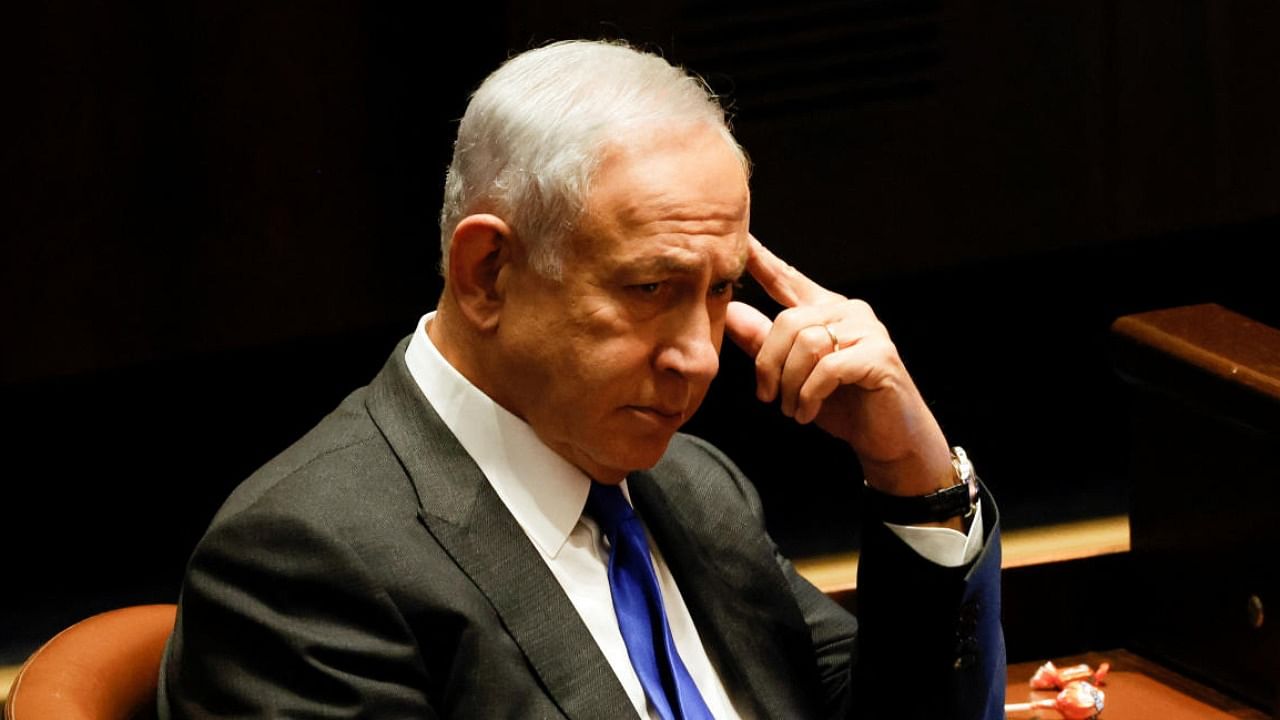
As veteran Israeli leader Benjamin Netanyahu presents his new government to parliament on Thursday, AFP takes a look back at four years of political turmoil.
The right-wing government, formed after the fifth election in four years, has sparked fears of a further military escalation in the Israeli-occupied West Bank, amid the worst violence there for nearly 20 years
In November 2018, Netanyahu's defence minister Avigdor Lieberman quits, denting the government's majority.
Lieberman, whose small nationalist party is the linchpin in the ruling coalition, resigns in protest over a truce agreed to avert a full-blown conflict with the Islamist movement Hamas in the Gaza Strip.
A month later the Knesset, or parliament, is dissolved and early elections are called. Netanyahu, dogged by graft allegations he denies, seeks another term at the April 2019 vote.
His right-wing Likud and the Blue and White alliance of centrist challenger Benny Gantz both bag 35 seats.
Netanyahu, enjoying the backing of smaller right-wing parties, is asked to form a government but fails to muster a majority. In late May, parliament is again dissolved. The second election in September 2019 is another tight race, with Gantz's alliance taking 33 seats against Likud's 32.
Netanyahu proposes a unity government, but Gantz refuses.
Each fails to form a coalition. In November, Netanyahu is charged with bribery, fraud and breach of trust -- the first sitting Israeli prime minister to face criminal prosecution.
Netanyahu denies all the charges.
Lawmakers call a third election for March 2020.
Likud comes out top by three seats. But Gantz, enjoying initial pledges of support from 61 lawmakers, gets the first shot at forming a government. He fails.
With Israel in the throes of the Covid-19 pandemic, Netanyahu and Gantz agree to form a unity government.
Under the deal, Netanyahu and Gantz will take turns at power. Lawmakers endorse the deal in May, but the government falls in December after failing to get a budget through the Knesset.
Parliament is dissolved again and new elections called.
Likud tops the poll again at the fourth vote in March 2021, followed this time by the centrist Yesh Atid party led by former television host Yair Lapid.
Netanyahu again fails to form a government. The task falls to Lapid.
Lapid stitches together a motley eight-party coalition, including an independent Arab party for the first time, united principally by their desire to topple Netanyahu.
Under the accord, nationalist hardliner Naftali Bennett will be premier for two years and then hand over to Lapid, who will be foreign minister in the interim.
After a record 15 years in power, Netanyahu is ousted. In April 2022, the ideologically-divided coalition loses its majority when the government whip, Bennett party member Idit Silman, joins the Netanyahu camp.
In June, Bennett and Lapid concede that attempts to stabilise the coalition have failed. They dissolve parliament and call the fifth elections in less than four years.
Lapid heads a caretaker government. After a tense campaign and high voter turnout in the November 1 polls, Netanyahu and his right-wing bloc get a clear majority in the 120-seat parliament, with 64 seats against 51 for Lapid's centrist bloc.
On November 13, Netanyahu secures a mandate to form a government, which he does on December 21, minutes ahead of the deadline. On December 29, he is to present to parliament his new government, which analysts call the most right-wing coalition in Israel's history.